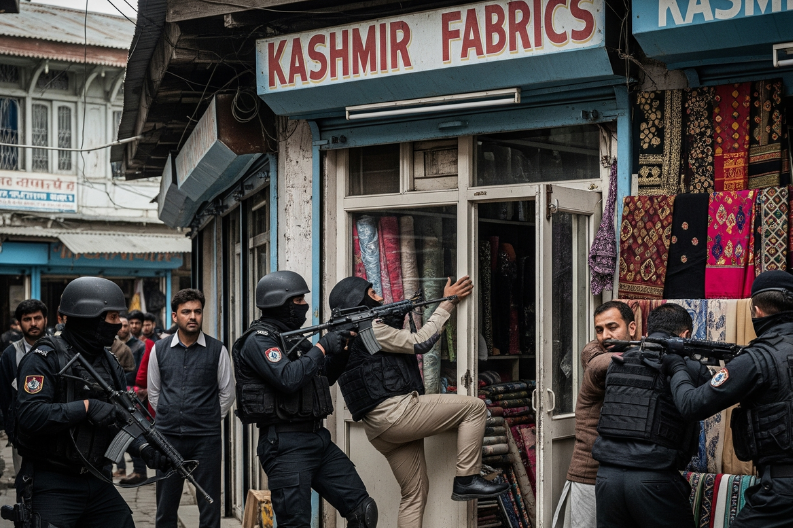The Kashmir police break up terror network in a major joint operation with the Delhi Police. The raid exposed a Lashkar-e-Taiba (LeT) module that secretly operated from a textile shop in Lajpat Nagar, New Delhi. The shop, run by Mohammad Ayoub Bhat from Budgam, served as a front to channel funds for terror activities in Kashmir.
Investigators said Bhat had ties with LeT for nearly a decade. He played a key role in moving about Rs 4 crore (around $480,000). Pilgrims, expatriates, and businessmen carried this money through his shop, Shalimar Textiles. He worked with Mohammad Rafiq Shah of Bemina, Srinagar, who also played a vital role.
The probe began in 2024 under the Unlawful Activities (Prevention) Act and IPC Section 120-B. It showed how money from abroad reached Kashmir through secret channels. Intelligence officers found LeT leaders across the Line of Control directing the scheme. They used Pakistani nationals in Gulf countries, who posed as travelers or traders, to send funds.
Police recovered digital devices during the raids. These devices linked Bhat to handlers in Pakistan. They also found records of hawala transfers, exposing the use of illegal money routes. These findings revealed the global scale of the network and its advanced methods.
The breakthrough matters because it cut off a major financial channel. It also highlights the need for vigilance. Terror groups often hide behind legitimate businesses, but joint action by intelligence units and police can stop them.
The Kashmir region still faces threats from such groups. Yet, strong countermeasures like this show the government’s resolve to weaken their networks. At the same time, citizens play a crucial role by reporting suspicious activity.
In the end, the Kashmir police break up terror network reminds everyone that the fight against terrorism continues. With joint efforts and public awareness, authorities can protect communities and strengthen peace in the region.



